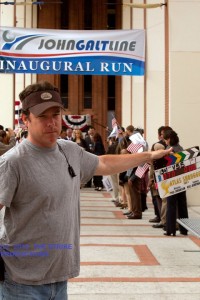
For over fifty years, Ayn Rand’s best selling novel, Atlas Shrugged, defied attempts to capture it on film or video. Now this past summer, a team led by John Aglialoro completed shooting on the first part of a planned Atlas Shrugged trilogy. Three weeks ago, ÆtherCzar presented a preview of the production based on behind-the-scenes shots available at the movie’s Facebook fan page and comments from Brian O’Toole. O’Toole co-wrote the screenplay for the movie, along with John Aglialoro.
Now, Brian O’Toole takes time from his busy schedule to answer a few questions about the production and the challenges inherent in bringing Atlas Shrugged to life in this exclusive interview with ÆtherCzar.
ÆtherCzar: There have been many attempts over the years to distill Atlas Shrugged to a workable movie script. Did you and John Aglialoro benefit or learn anything from these earlier efforts, or were you starting essentially from scratch?
Brian O’Toole: I have previously adapted other novels for film adaptations so I approached ATLAS SHRUGGED the same way, which was to start by breaking down each chapter into scene headings and then highlighting important directions and dialogue under each heading. Then John and I discussed each part and talked about what needed to stay as written or what could be changed for a more cinematic experience. I approached ATLAS SHRUGGED without reading other attempts.
ÆtherCzar: What led you to align your trilogy with the three “books” into which Rand divided the novel?
Brian O’Toole: It was decided early on that we should split the book into three parts, mirroring the novel’s structure. The novel is so rich with fantastic characters and thoughtful dialogue that it just seemed unfair to movie audiences to truncate the story into one film. The first part is the underdog story, whereas the second part is more of a political thriller and the third part is more speculative science-fiction – a warning to those who would chose the wrong paths outlined in the novel. Naturally, when adapting the first part, you have the added hurdle of introducing characters along with setting up the universe in which ATLAS SHRUGGED exists.
ÆtherCzar: The audio book version of Atlas Shrugged is over 48 hours long. Even breaking the movie adaptation into a trilogy, you and co-writer John Aglialoro necessarily had to make difficult decisions what to include and what to cut. Can you share with us what character, subplot, or aspect of the story you most regret having to leave out? [Is Ragnar Danneskjöld in or out? The mysterious brakeman? Dan Conway? Robert Stadler? Floyd Ferris? ]
Brian O’Toole: Actually, we didn’t have to leave out that many characters. For example, Ragnar Danneskjold doesn’t physically appear in the novel ATLAS SHRUGGED until Part Two when he offers Henry Rearden a bar of gold. There are fleeting mentions of him in Part One. A lot of secondary characters were introduced in the book at the Rearden’s anniversary party. Some of them didn’t make the cut in Part One, but will be introduced in Part Two.
There were two scenes from the book that didn’t make Part One which I personally liked. The first is after Dagny is visited by the head of the locomotive union and told that she will get no union man to help run the John Galt Line. The scene after that, my favorite, is when Dagny opens the door and sees a crowd of men volunteering to join her team. Another scene I wanted to include was when Dagny hides the motor model in the subway tunnel. It’s a small scene and not absolutely necessary to tell the story but I really liked it because it showed Dagny’s dedication to using the motor to save the family railroad. There are some scenes, like flashbacks to childhood events, which did not fit in our linear telling of the story and were reluctantly axed.
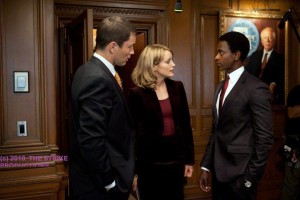
As the team molded the screenplay, the music of Richard Halley, although a running plot-point throughout Ayn Rand’s book, didn’t seem to forward the screen story and so was minimalized. Eddie Willers, a favorite character of mine because he really represented the everyman in the book, saw his role in the film also minimalized. In the novel, Eddie Willers has some conversations with a mysterious Taggart Transcontinental employee who (spoiler alert) we discover is actually John Galt. These conversations mostly acted as summaries for the reader who may have had a need to re-focus. Plus, this was the way John Galt kept track of certain events. And we also learned through these conversations that Eddie is sweet on Dagny since childhood. This is all great information but just didn’t work cinematically so Eddie Willers’ contributions to Part One were trimmed.
ÆtherCzar: Ayn Rand wrote Atlas Shrugged in the 1950s, laying out a hypothetical extrapolation of events in, what was to her, the near future. What were some of the key reasons you and John Aglialoro decided to update the story to present times?
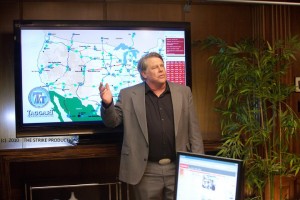
Brian O’Toole: ATLAS SHRUGGED is a ‘What-if’ novel. There are few actual dates given. I believe Ayn Rand meant for it to be timeless. Ayn Rand wrote what she knew. In 1957, commercial airlines were in their infancy, which is why there isn’t much mention of them in the book. We tried to keep the film timeless but utilizing things that would exist “tomorrow”, such as cell phones and computers. It is not like, say METROPOLIS or BLADE RUNNER. It is simply tomorrow. Beyond today’s obvious technological advances, the story pretty much remains the same with the introduction of Rearden Metal, the kinetic motor model, Project Xylophone etc.
It is fascinating how much of what Ayn Rand wrote in 1957 is now coming to pass in 2010. My favorite quote that I’ve read floating around on the Internet has to be “ATLAS SHRUGGED was supposed to be a warning, NOT a newspaper.” My greatest wish for our film is that it gets people to read the full novel.
ÆtherCzar: When Ayn Rand wrote Atlas Shrugged, railroads were central not only to transportation and logistics, but also to Rand’s plot. What challenges did you face in translating her story to today’s world in which Interstate Highways and widespread jet travel have overshadowed rail transportation?
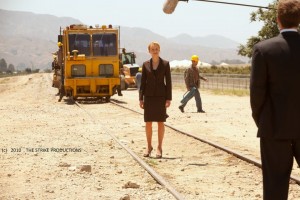
Brian O’Toole: It makes sense that in the universe Ayn Rand created fuel prices would be so high that airlines, ship freighters and even buses and cars would become too expensive to operate and the first to collapse. People would naturally rely on railroads again. Since this first film is Part One, there isn’t a whole lot of time spent on the darker nature of the world as there is introducing the characters and setting up the situations. Part Two will show the world slipping into further decline and, of course, Part Three is the darkest before the dawn… of John Galt.
ÆtherCzar: Which aspect of Atlas Shrugged was most difficult to capture in your script and on film?
Brian O’Toole: The most difficult aspect to capture is what is inherently difficult in all book-to-film adaptations and that is deciding what must stay, what must be added to enhance the cinematic version, and what can go from the source material. This is very difficult, especially when working with different creative minds.
I look at writing an adaptation as if it were a bear and everyone involved in the development process was asked to draw a picture of a bear. I guarantee you that everyone would draw a different picture of a bear. Some would be cartoony. Some would be realistic. Some would be fierce-looking. Some would be gentle. And so on. Now, the screenwriter’s job is to take those pictures and create one bear that represents the most common aspects of all those other ideas/drawings (along with the original source material) and hope that it incumbencies most of the vision of everyone involved. You can imagine how that can go, right? As I always say, ‘If there are no arguments, then it isn’t a creative meeting’. Sometimes you have to wait for your idea to take seed in other creative minds.
Back in April I suggested a prologue that would set up the alternate world of ATLAS SHRUGGED by taking a page from such movies as NETWORK and EXPLORERS where we hear/see people discussing the news and history of this world. Eventually, it was decided to begin with a newscast but then as comments rolled in during post-production it was clear the prologue was needed and the idea became part of the film. Another interesting aspect of collaboration came with dialogue and other people on the teams’ thoughts as to what the character would or would not say. For example: was it true-to-the-book to have a different character call another a destroyer (Dagny’s term for Galt) or have a ”producer” use the word sacrifice or miracle? Book-to-film adaptations require a lot of creative patience as everyone has their own vision of “the bear” but the most important thing I keep in mind when I am hired to adapt something is to capture the spirit of the material and make it entertaining for all audiences.
ÆtherCzar: What do you regard as the most significant difference between the story as told in Ayn Rand’s novel and your film version?
Brian O’Toole: Well, the film is shorter. Actually, like all book-to-film adaptations, the movie is unable to take valuable screen time to go back and give insight to characters’ pasts and inner thoughts like a book can. I always think of the novel CUJO by Stephen King. In the book, King spends time inside the dog’s head; sharing its thoughts with the reader. The dog’s thoughts question why it’s sick; why it wants to attack. Now, if they kept that aspect in the movie version, you’d have to add a voice over. Now a talking dog may work in a Disney film but not in a thriller – it would most likely take you right out of the film and stir up unintentional laughter if not done effectively. So, when adapting a project, you really have to look at the source material and pick and choose the most cinematic moments, and if they don’t exist then you have to decide what must be added, combined or left out to reach that goal. There were a lot of backstory elements in the book I would have loved to have kept; the lightning strike of the tree watched by the Taggarts and Eddie Willers; the use of sunsets as a symbolic timetable, Dagny and Rearden’s fantasies about one another but, in the end, they would have removed the audience from the story you are trying to tell on film.
ÆtherCzar: The production of Atlas Shrugged has been criticized for its relatively low budget and lack of famous acting talent. Do you believe these factors have compromised your ability to bring Ayn Rand’s story to the screen?
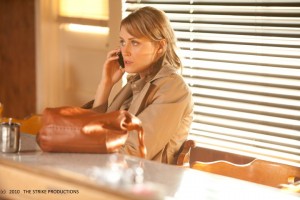
Brian O’Toole: Why is it that everyone on the Internet, when talking about our production of ATLAS SHRUGGED-PART ONE, seem to fixate on the “low budget”? It puzzles me. Five million dollars is still a lot of money.
We made ATLAS SHRUGGED-PART ONE independently – in every sense of that word. John Aglialoro personally financed the film so that the story could be told without studio executive pressure to make the story more Hollywood-friendly, which I believe he encountered in his past dealings to have the book brought to the screen. I think it’s heroic that someone would put up their own money to finance something that obviously means a lot to them. It’s something to be respected. To me, that’s the story people should be focusing on, not who the actors are and how much the movie cost.
As for the lack of star power behind the names in the film, I think it’s a bit ridiculous. I can’t believe audiences would rather say “Wow, Julia Roberts did a great job portraying Dagny Taggart” than be involved in the journey that the character takes in the story as portrayed by a very gifted actress like Taylor Schilling.
There was a story in the Los Angeles Times recently about a television production that was paying each of its writers $200,000 a week and yet they were not required to write a single word until Spring 2011. This is a good example as to why Hollywood productions are out of control. When you use money efficiently and wisely, and you hire a crew that is imaginative and thinks out of the box and not from the checkbook, you’ll be surprised by the quality you can get up on the screen. In my opinion, the budget was exactly right for this film, so, please everybody, stop worrying how much the film cost to make and enjoy the show.
ÆtherCzar: Will filming on the next two parts of the trilogy be able to begin before you release part one?
Brian O’Toole: Currently, I am in pre-pre-production on Part Two. I am breaking down that section of the book and starting preliminary edits. Once I’m done with that, I will present it to my co-writer John Aglialoro and we will start the process of what stays, what changes and what goes before a first draft screenplay is written. I suspect that pre-production on Part Two will begin shortly after the theatrical release of Part One early in 2011.
ÆtherCzar: Are you working with a distributor yet? Any news on a release date? Still expecting sometime next year?
Brian O’Toole: As of this interview, we are still editing the film. I believe that some distributors have expressed interest but no decisions have been made. We are narrowing down a release date but all I can say right now is “early 2011”. When dates are locked-down, we will definitely post it on our Facebook page.
Previously on ÆtherCzar: Atlas Shrugged (Part One) – A Movie Preview
UPDATE (11/24/2010): In case you missed it Joshua Zader has a great interview with producer John Aglialoro at Atlasphere.
2. Pride and Prejudice, Jane Austen x
3. His Dark Materials, Philip Pullman x
4. The Hitchhiker’s Guide to the Galaxy, Douglas Adams x+
5. Harry Potter and the Goblet of Fire, JK Rowling x
6. To Kill a Mockingbird, Harper Lee *
7. Winnie the Pooh, AA Milne x
8. Nineteen Eighty-Four, George Orwell x
9. The Lion, the Witch and the Wardrobe, CS Lewis x
10. Jane Eyre, Charlotte Brontë *
11. Catch-22, Joseph Heller x
12. Wuthering Heights, Emily Brontë *
13. Birdsong, Sebastian Faulks
14. Rebecca, Daphne du Maurier x
15. The Catcher in the Rye, JD Salinger x-
16. The Wind in the Willows, Kenneth Grahame x
17. Great Expectations, Charles Dickens x
18. Little Women, Louisa May Alcott x
19. Captain Corelli’s Mandolin, Louis de Bernieres
20. War and Peace, Leo Tolstoy *
21. Gone with the Wind, Margaret Mitchell
22. Harry Potter And The Philosopher’s Stone, JK Rowling x
23. Harry Potter And The Chamber Of Secrets, JK Rowling x
24. Harry Potter And The Prisoner Of Azkaban, JK Rowling x
25. The Hobbit, JRR Tolkien x
26. Tess Of The D’Urbervilles, Thomas Hardy
27. Middlemarch, George Eliot
28. A Prayer For Owen Meany, John Irving x-
29. The Grapes Of Wrath, John Steinbeck *
30. Alice’s Adventures In Wonderland, Lewis Carroll x
31. The Story Of Tracy Beaker, Jacqueline Wilson
32. One Hundred Years Of Solitude, Gabriel García Márquez
33. The Pillars Of The Earth, Ken Follett *
34. David Copperfield, Charles Dickens x
35. Charlie And The Chocolate Factory, Roald Dahl
36. Treasure Island, Robert Louis Stevenson x
37. A Town Like Alice, Nevil Shute
38. Persuasion, Jane Austen x
39. Dune, Frank Herbert x
40. Emma, Jane Austen x
41. Anne Of Green Gables, LM Montgomery
42. Watership Down, Richard Adams x
43. The Great Gatsby, F Scott Fitzgerald x+
44. The Count Of Monte Cristo, Alexandre Dumas
45. Brideshead Revisited, Evelyn Waugh
46. Animal Farm, George Orwell x+
47. A Christmas Carol, Charles Dickens x+
48. Far From The Madding Crowd, Thomas Hardy
49. Goodnight Mister Tom, Michelle Magorian
50. The Shell Seekers, Rosamunde Pilcher
51. The Secret Garden, Frances Hodgson Burnett
52. Of Mice And Men, John Steinbeck *
53. The Stand, Stephen King x
54. Anna Karenina, Leo Tolstoy
55. A Suitable Boy, Vikram Seth
56. The BFG, Roald Dahl
57. Swallows And Amazons, Arthur Ransome
58. Black Beauty, Anna Sewell
59. Artemis Fowl, Eoin Colfer x
60. Crime And Punishment, Fyodor Dostoyevsky
61. Noughts And Crosses, Malorie Blackman
62. Memoirs Of A Geisha, Arthur Golden *
63. A Tale Of Two Cities, Charles Dickens x
64. The Thorn Birds, Colleen McCollough
65. Mort, Terry Pratchett x
66. The Magic Faraway Tree, Enid Blyton
67. The Magus, John Fowles x
68. Good Omens, Terry Pratchett and Neil Gaiman x+
69. Guards! Guards!, Terry Pratchett x
70. Lord Of The Flies, William Golding x
71. Perfume, Patrick Süskind *
72. The Ragged Trousered Philanthropists, Robert Tressell
73. Night Watch, Terry Pratchett x
74. Matilda, Roald Dahl
75. Bridget Jones’s Diary, Helen Fielding
76. The Secret History, Donna Tartt x+
77. The Woman In White, Wilkie Collins x
78. Ulysses, James Joyce
79. Bleak House, Charles Dickens x
80. Double Act, Jacqueline Wilson
81. The Twits, Roald Dahl
82. I Capture The Castle, Dodie Smith
83. Holes, Louis Sachar
84. Gormenghast, Mervyn Peake *
85. The God Of Small Things, Arundhati Roy
86. Vicky Angel, Jacqueline Wilson
87. Brave New World, Aldous Huxley *
88. Cold Comfort Farm, Stella Gibbons
89. Magician, Raymond E Feist x
90. On The Road, Jack Kerouac * (actually my next read)
91. The Godfather, Mario Puzo *
92. The Clan Of The Cave Bear, Jean M Auel x
93. The Colour Of Magic, Terry Pratchett x
94. The Alchemist, Paulo Coelho
95. Katherine, Anya Seton
96. Kane And Abel, Jeffrey Archer
97. Love In The Time Of Cholera, Gabriel García Márquez
98. Girls In Love, Jacqueline Wilson
99. The Princess Diaries, Meg Cabot
100. Midnight’s Children, Salman Rushdie
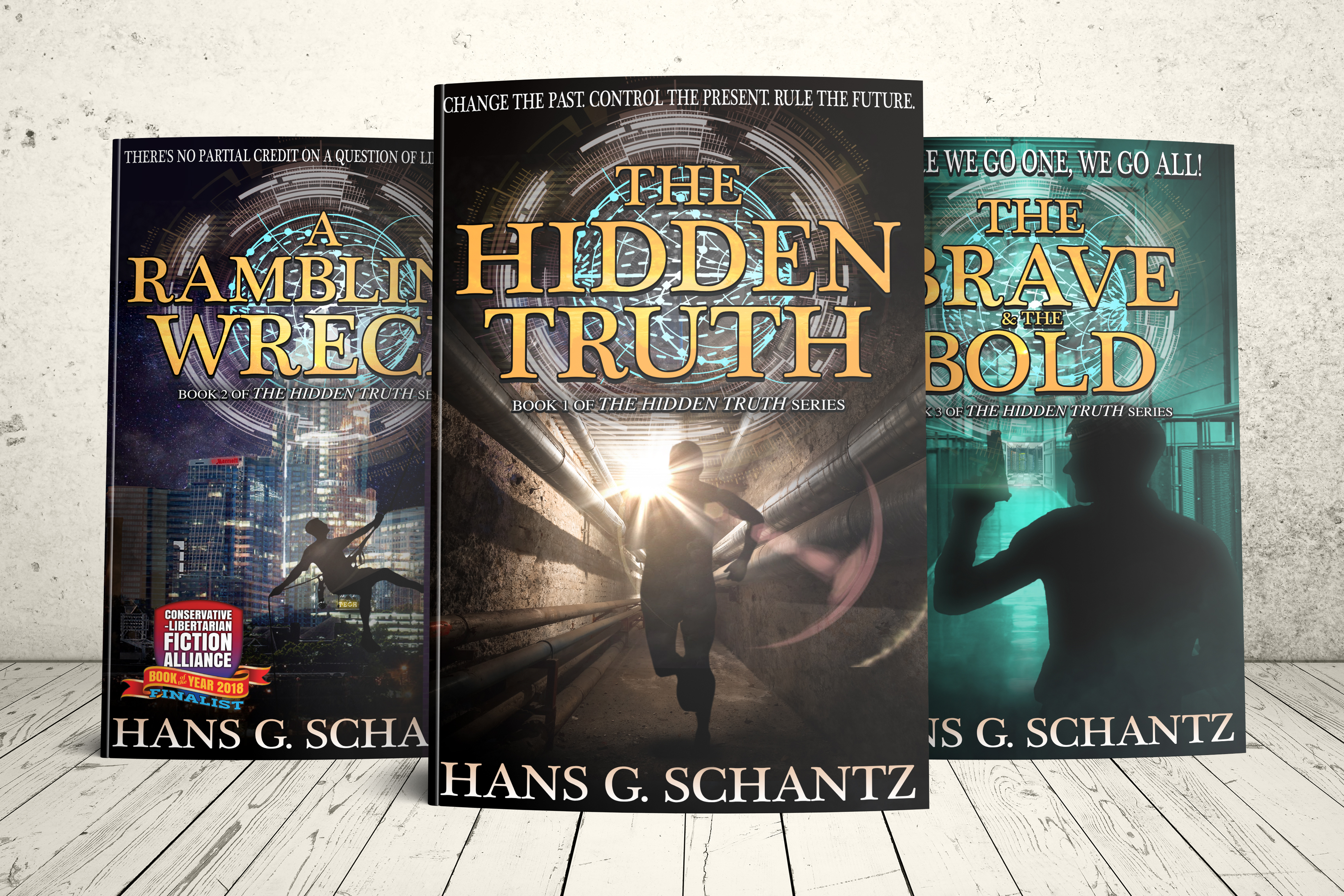
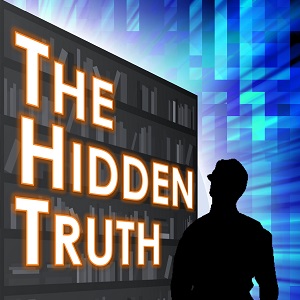
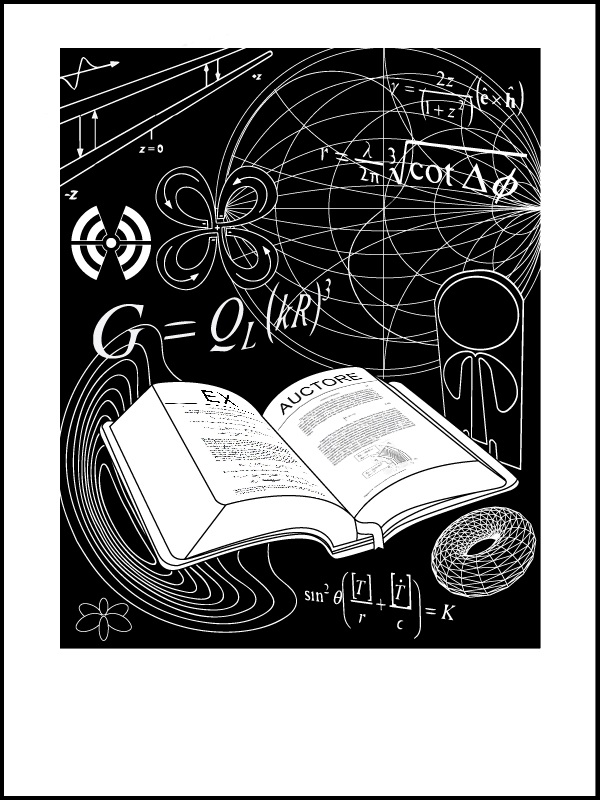

14 thoughts on “Interview with Brian O’Toole, Screenwriter: Atlas Shrugged-Part One”
I am thrilled at this look inside the screenwriter’s mind. The writer interviewed had one of the great challenges in movie history in adapting this deeply compex and unconventional work. Let’s not forget that Rand started the novel in 1945 and finished in 1957. Thank you for this interview!
I wrote a screenplay for AS in 1980 — just for the experience of doing it — so I was also interested in finding out about Brian’s approach. Looking forward to seeing the trilogy!
I have been hopping for someone to produce this movie since I began reading the book in 1991. The fact that it is being done as is described here pleases me, as my biggest worry about it was how true it would be to the book. The fact that one person footed the 5million dollar price tag is inspiring, but the fact that there weren’t many people willingly offering to spend tons more of their money to produce it makes me sad. On the issue of low budget, I think efficiency is fitting of t he spirit of the book in general. Sound functional structure is far more important than grandiose esthetically pleasing amenities. Good toilet paper is more important than a gold plated seat.
I am very worried about the release of AS. Without a distributor signed up in advance, and with no “stars” in the cast, the film may have an extremely difficult time getting the multi-million marketing budget needed for a national release. While you can make a very good movie for five million dollars, the cost for “P&A” (prints and advertising) can easily run ten or twenty million for a full distribution of at least 1,500 screens in the U.S. The film may get made by doing it this way, but it may be shown only in a very few theaters at best.
Why couldn’t an Atlas Shrugged Movie corporation be set up, and issue stock for folks who believe in this movie? The problem I see is that the stars, with or without names, had better have topnotch ability to garner great stock prices!
This interview must be a great relief to any lover of ‘Atlas Shrugged’.
Brian O’Toole clearly knows what he is about. I especially like his response to the question concerning the relatively small budget for the film. It reminds me how Ellis Wyatt explained to Dagny that there is another way of creating wealth: improved efficiency.
I hope the finished product is stylised (showcasing an art-deco New York), unconventional, uncompromising and morally forthright, Also, I hope it will be released in England, where Ayn Rand’s ideas are badly needed.
I, for one, am glad the likes of Julia Roberts, Angelina Jolie and/or Brad Pitt are not part of this movie. I have wracked my brain ever since talk of a movie began and have yet to find a suitable actor for the major roles. The important part is how much the spirit of the book is retained and like the idea that a small budget looks like a $30M movie. Bravo. I’ll likely see it 5 – 10 times in the theater and buy the Blu-ray as soon as it’s released.
All great human achievements are self-made. From the self-made novelist to the self-made screenwriter to the self-made actor. We have the novel and we have, from their own self-confessions, a tribe of individuals come to bring the word of Ayn Rand into the cinematic light of day. “Hush now”; “turn out the lights”; “role the film”. Where ever the light shines on “Atlas Shrugged” you will see the universe of Ayn Rand.inexorably. Don’t doubt now when the possible is now made REEL by men of genuine self-interest and integrity.
Mr O’Toole,
I appreciate your workman-like, straightforward approach to the adaptation. The trailer and cast look great. I can’t wait to see your movie.
I believe the movie will either get a good distribution deal at its beginning, or shortly after it explodes in popularity exactly like the book did 50 years ago: by word of mouth and multiple purchases/viewings by the same person.